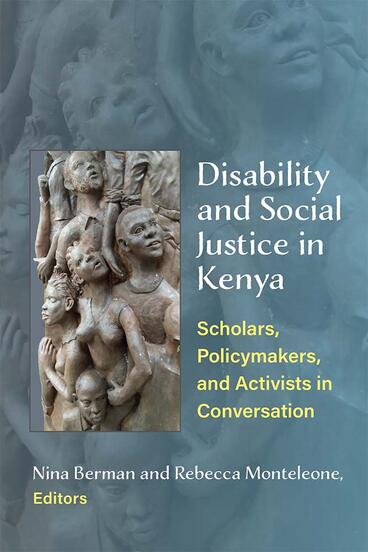Disability and Social Justice in Kenya
Scholars, Policymakers, and Activists in Conversation
The first interdisciplinary and multivocal study of its kind to review achievements and challenges related to the situation of persons with disabilities in Kenya today
Description
Disability in Africa has received significant attention as a dimension of global development and humanitarian initiatives. Little international attention is given, however, to the ways in which disability is discussed and addressed in specific countries in Africa. Little is known also about the ways in which persons with disabilities have advocated for themselves over the past one hundred years and how their needs were or were not met in locations across the continent. Kenya has been on the forefront of disability activism and disability rights since the middle of the twentieth century. The country was among the first African states to create a legal framework addressing the rights of persons with disabilities, namely the Persons with Disabilities Act of 2003. Kenya, however, has a much longer history of institutions and organizations that are dedicated to addressing the specific needs of persons with disabilities, and substantial developments have occurred since the introduction of the legal framework in 2003.
Disability and Social Justice in Kenya: Scholars, Policymakers, and Activists in Conversation is the first interdisciplinary and multivocal study of its kind to review achievements and challenges related to the situation of persons with disabilities in Kenya today, in light of the country’s longer history of disability and the wide range of local practices and institutions. It brings together scholars, activists, and policymakers who comment on topics including education, the role of activism, the legal framework, culture, the impact of the media, and the importance of families and the community.
Nina Berman is Professor of International Letters and Cultures at Arizona State University.
Rebecca Monteleone is Assistant Professor of Disability Studies at the University of Toledo.
Reviews
"The book is an excellent introduction to current disability discourses in Kenya and succeeds in bridging different discourses of various disciplines (law, social sciences, accessible education, media studies) to form a point of departure for further discussions."
- KULT_online
--KULT_online
News, Reviews, Interviews
Watch: Book Launch Event | 11/17/2022

